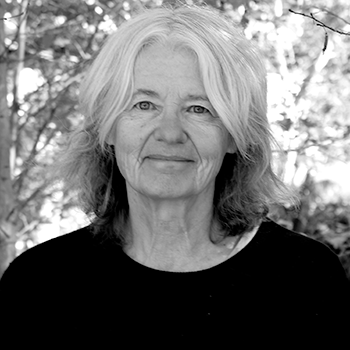Reading Novalis in Montana
The dirt road is frozen. I hear the geese first in my lungs. Faint hieroglyphic against the gray sky. Then, the brutal intervention of sound. All that we experience is a message, he wrote. I would like to know what it means if first one bird swims the channel across the classic V, the line flutters, and the formation dissolves. In the end, the modernists must have meant, it is the human world we are weary of, our arms heavy with love, its ancient failings. But that was before the world wars, in 1800, when a young German poet could pick at the truth and collect the fragments in an encyclopedia of knowledge. There is a V, then an L, each letter forming so slowly that the next appears before it is complete. The true philosophical act is the slaying of one's self, Novalis wrote, and died, like Keats, before he was thirty. They have left me behind like one of their lost, scratching at the gravel in the fields. Where are they once the sky has enveloped them? I stand in the narrow cut of a frozen road leading into mountains, the morning newspaper gripped under my arm. But to give up on things precludes everything. I am not-I, Novalis wrote. I am you. If, as the gnostics say, the world was a mistake created by an evil demiurge, and I am trapped in my body, abandoned by a god whom I long for as one of my own, why not follow the tundra geese into their storm? Why stay while my great sails flap the ice as if my voice were needed to call them back in the spring, as if I were the lost dwelling place for the flocks?
Credit
From Reading Novalis in Montana by Melissa Kwasny. Copyright © 2009 by Melissa Kwasny. Used by permission of Milkweed Editions. All rights reserved.
Date Published
01/01/2009

